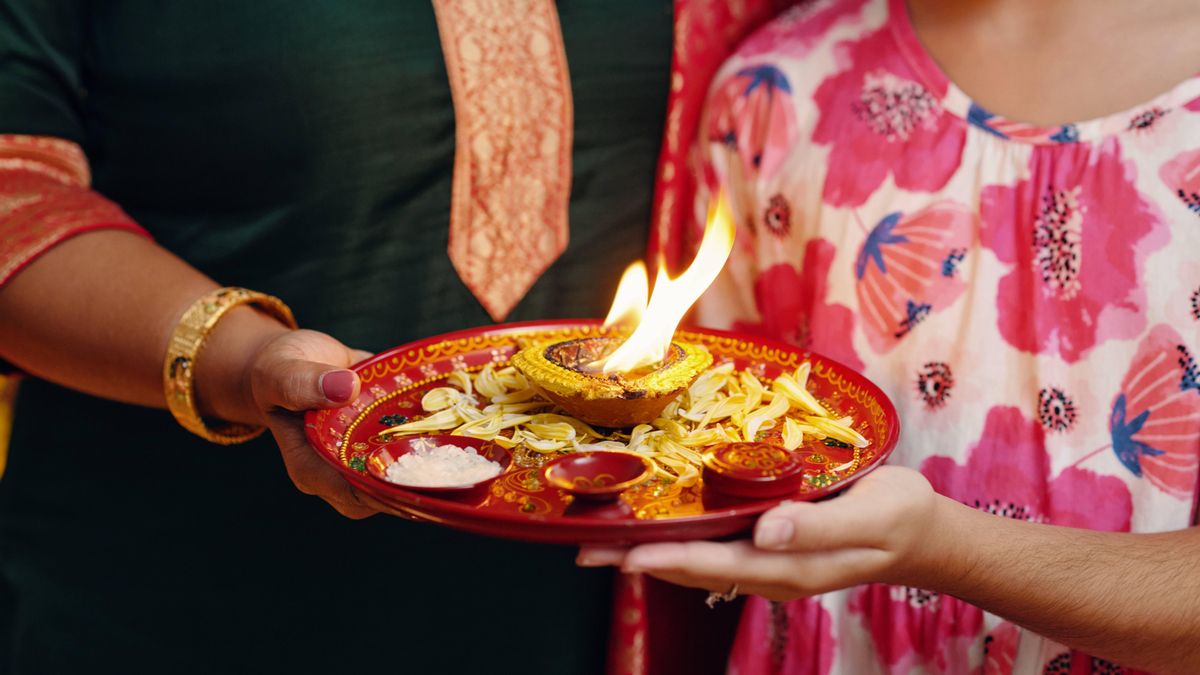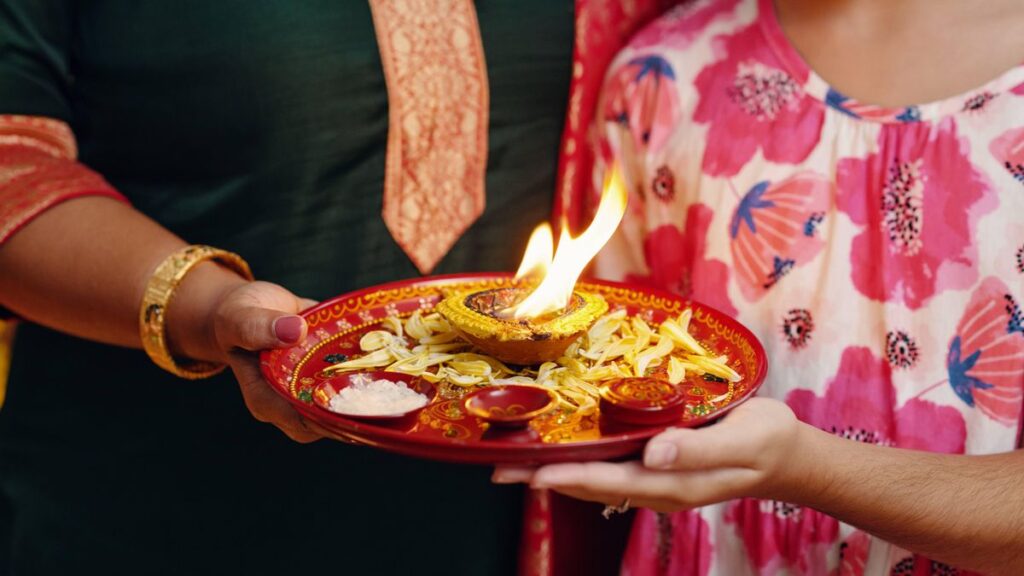The Festival of Light Illuminates the Canary Islands
As night falls and lamps begin to glow, the air fills with sweet aromas, bright colours, and shared laughter. It’s Diwali, the Festival of Light, one of the most important celebrations in Hinduism and one of the most anticipated events for the Hindu community in the Canary Islands—a community that has called the islands home for more than half a century. The word Diwali comes from the Sanskrit Deepavali, meaning “row of lights.” This festival symbolises the victory of light over darkness, good over evil, and knowledge over ignorance. Diwali follows the lunar calendar, so it doesn’t fall on the same date every year, but it typically occurs between October and November. The exact date coincides with the darkest night of the lunar month of Kartika, a time when light takes on a deeper spiritual meaning.
Rituals of Renewal and Prosperity
In India and wherever Hindu communities are found, homes are illuminated with diyas (oil lamps), decorated with flowers and rangolis—vibrant designs made from coloured powder or petals—and families offer prayers to Lakshmi, the goddess of prosperity, and Ganesha, the god of wisdom and new beginnings.
A Symbolic New Beginning
While some believe Diwali marks the Hindu New Year, it is more symbolic: it represents a fresh start. It is the moment when the darkness of the previous cycle dissolves to make way for the light of the new. This is why, in both businesses and homes, the Hindu community performs a deeply meaningful gesture: they close the financial accounts of the previous year and open new ledgers, welcoming the visit of the goddess Lakshmi, who brings prosperity and blessings for the year ahead. Thus, Diwali becomes a rite of spiritual and material renewal. Families clean and decorate their homes, dress in their finest clothes, prepare traditional sweets, and gather to share food, joy, and hope. Every lit lamp serves as a reminder that, even in difficult times, the inner light never goes out.
A Tradition Rooted in the Canary Islands
The Hindu community in the Canaries is a shining example of integration and resilience, demonstrating how this archipelago is truly a territory open to the world through eight different gateways. Although the first Indian settlers arrived in the late 19th century, the majority came during the 1950s and 60s, opening small shops and bazaars that over time became an essential part of daily life in the islands. Beyond their economic success, what stands out most is their strong sense of family, hospitality, and community spirit.
Diwali is celebrated in the Canaries not only in temples but also in homes and businesses, where lamps are lit and the fruits of the year are gratefully acknowledged. In every shop, on every counter, a candle burns in honour of Lakshmi, a symbol of hope and prosperity. It is a small but profoundly significant gesture: a way of saying that the light of hard work and family unity continues to shine.
A Vibrant Community Celebration
The Hindustani Communities on each island organise Diwali celebrations year after year, bringing together entire generations: the elders who brought the traditions from India and the young people born in the Canaries, who proudly keep them alive. This pride is so strong that the youngest children often prepare dances that depict the most representative themes of the celebration.
On October 18th, the traditional Diwali Gala took place in Las Palmas de Gran Canaria, organised by the Hindustani Community of the city. The event was full of music, dance, and emotion. For weeks—sometimes months—the children and youth of the community practice choreographies, performances, and acts to share with their families and friends on this special night. It is not just a religious ceremony but a cultural celebration, a meeting point where you can feel the palpable pride in their shared heritage.
A Row of Lights That Unites Cultures
Diwali in the Canary Islands is much more than a religious holiday; it is a living expression of coexistence, respect, and shared belonging. The Hindu community has not lost its essence but has instead opened its doors, shared its culture, and actively participated in island society. In every lit lamp, there is a story: that of those who arrived with dreams and turned them into roots; that of those who teach their children that the most important light is not in the candles, but in the values passed down from generation to generation.
And this year, once again, a new beginning; the streets, temples, and homes will shine with that same ancient light. Because Diwali does not mark an end, but a new beginning—an invitation to look forward, to celebrate prosperity, family, and community. As many members of the Hindu community say, it is a time for hope and togetherness.


